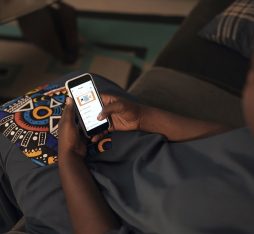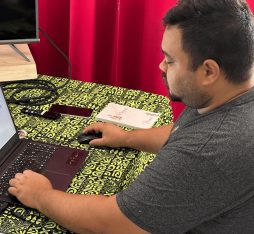New technologies bring people together in general and lovers in particular. They multiply contact points and the ways of expressing affection. A simple emoji sent on WhatsApp, a link or GIF shared on Gtalk, an SMS written on the fly, a video posted on a Facebook profile, a FaceTime between two meetings … So many signs of attention shown throughout the day.
A special space for intimacy
Whatever the configuration – a new couple or a long – term relationship, spouses separated due to professional obligations for 24 hours or by an ocean -, the new communication tools help to create a sense of closeness and constitute a special space for intimacy.
As reported by Hua Su on Slate, “Some young couples even leave the camera on while they cook, eat, study, and play video games”. For the purposes of a study, the researcher interviewed several Chinese students and young professionals.
This illustrates that smartphones and social networks are a tool to satisfy the emotional (but also logistic) needs of couples and they play an important role in the daily interactions of partners.
From “technological colonisation” to “facestalking”
Though the smartphone brings people together, it may also move them apart. It is often criticised for interfering in the lives of couples, or even being a “love killer”! Chiara Piazzez talks of “technological colonisation”. “One of the fundamental aspects of romantic love is to be fully present for the other”, affirms this UQAM researcher in sociology. Now, with a connected object – like a smartphone placed on the table -, the other is always a bit distracted”.
“In the age of smartphones, some find it difficult to bear radio blackouts”
The smartphone is also criticised for threatening the stability of couples. For example, hyperconnection may make some people think that their partner is (or must be) permanently available, which can lead to significant conflicts. “[…] Many young lovers expect to have “exclusive access” that would conform to their “exclusive relationship”, explains Hua Su. In the age of smartphones, some people find it difficult to bear blackouts.
Another source of tension: as much as the new communication tools multiply contact points with ones lover, they equally multiply the opportunities to connect to third parties and, where necessary, encourage flirting with such. However, if certain equivocal behaviours on the Net are considered as betrayals by some, they may not be considered same by others.
In the same way that they challenge our ideas about fidelity, these tools would redefine the concept of intimacy, made more illusive. According to some researchers, the way partners describe intimacy in the digital age has changed. Intrusion into a spouse’s private life may be considered more innocuous and increasing while “facestalking” (spying or monitoring of a current or potential partner on Facebook) has become a socially acceptable practice.
Ultimately, the digital age shall witness abuses being perpetrated, in the increase of abuse “In Real Life” or not. A study published by the Centre for Innovative Public Health Research and the Data & Society Research Institute reveals that 12% of US Internet users have experienced abuse from a partner, ranging from monitoring online activities to harassment, humiliation or disclosure of personal information.
Code of conduct
There is no doubt, (almost) everyone agrees with the fact that technology is beneficial to a couple… if it is well used. It seems that peace within the household lies in the transposition on the digital terrain of the right marital distance, or “spatial segregation” to quote Hua Su.
Then comes the idea of a code of conduct which, like the “netiquette” in love that would govern online meetings, would help the partners define a certain number of limits and rules. With the difference that these Tables of the Law would involve a great deal of individualization. The partners would agree, more or less explicitly, on certain points in order to identify behaviours likely to be ambiguous or abusive, to “contextualize silence” and prevent “misinterpretations” from breaking into conflicts.
As such, one of the commandments that should often come up is: “You will not start, or try to settle a conflict via SMS or on the Internet!”










